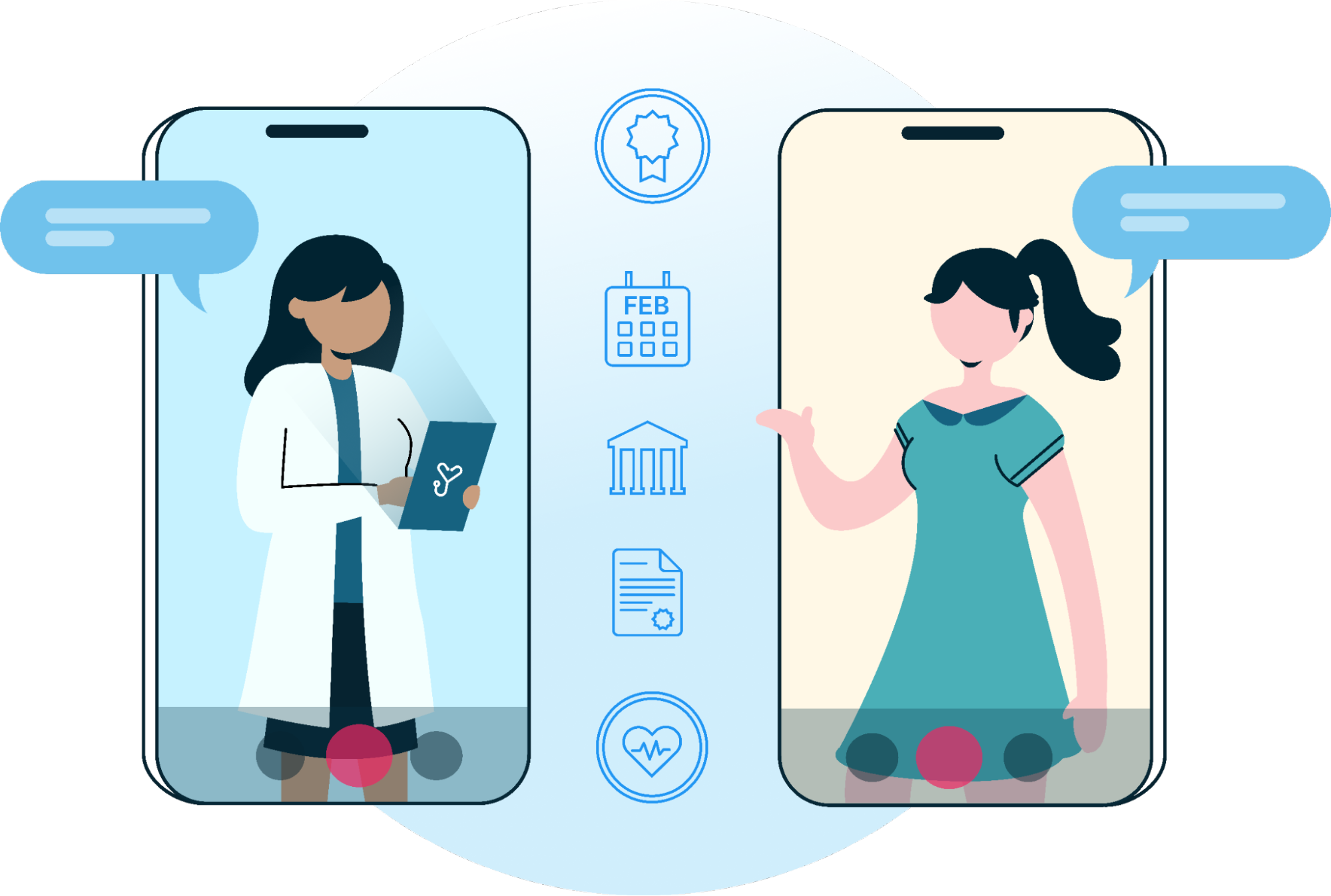The End Of The Public Health Emergency Part 1 – Permanent Medicare Changes and Their Effects

As the PHE ends, it’s important to know what is changing so that you can be prepared. In part 1 of our blog series, Mend reviews the permanent Medicare changes to the Telehealth policy.
The COVID-19 public health emergency (PHE) has been in place for three years. This has had myriad effects on Telehealth policies as well as how providers deliver digital care. With the PHE ending on May 11, 2023, some Telehealth policy changes will remain permanent, while others will end in May or later this year.
As the end date nears, it’s essential for providers to take steps now to comply with the upcoming policy changes. This is necessary to mitigate legal risk, ensure reimbursement, and provide continuity of care for patients. In part 1 of our 3-part series, we’ll cover the permanent changes relating to Telehealth you need to know.
Permanent Medicare Changes Relating to Telehealth Policy
At the start of COVID-19, the CMS used emergency waivers to streamline access to virtual care. Policymakers and the CMS have already begun to evaluate which policies they intend to keep permanent. It’s possible more policies may become permanent before the PHE ends. Here are the current digital health changes slated to remain as permanent policy:
FQHCs and RHCs as Distant Site Providers
Before the PHE, only a specific list of eligible providers could offer virtual visits and receive reimbursement by Medicare. At the time, Federally Qualified Health Centers (FQHCs) and Rural Health Clinics (RHCs) were not eligible.
In the early months of the pandemic, virtual care increased dramatically to avoid possible exposure to the virus. Two areas that saw growth in digital health include behavioral and mental health services. The frequency of these visits far exceeded general health visits.
FQHCs and RHCs were critical in providing behavioral and mental health care to underserved communities during the PHE. The policy change will allow these locations to remain a distant site provider for these types of visits.
Telehealth policy defines a distant site provider as the location of the provider giving virtual care. This will allow providers to continue to offer these types of visits from either a FQHC or RHC location.
Medicare Patients Can Receive Virtual Visits in their Home for Behavioral and Mental Healthcare
Before the PHE, the patient’s location was a main determiner of their eligibility to receive virtual care. A patient must have been in a rural or non-MSA location when Telehealth service takes place. Apart from certain exceptions, this policy included a specific list of acceptable locations, and the home was not included.
Two permanent changes to Telehealth policy expands where Medicare patients can receive virtual care.
First, patients may now receive Telehealth services for behavioral and mental health care in their home.
Secondly, there are no geographic restrictions for the originating site for behavioral and mental Telehealth services. In the past, patients could only receive Telehealth in their homes if they met certain geographic requirements.
In some instances, however, Medicare may require the patient to schedule an in-person appointment. This needs to occur within 6 months or 12 months to continue to receive care virtually.
This is excellent news for patients receiving and providers offering Telehealth services. A recent study shows an increase in reported behavioral health conditions as a result of the pandemic. Patients also reported stress from work disruptions, resignations, work-from-home policies, and increased burnout overall. A virtual option for mental health visits may have a positive impact on the continuity of care even as the PHE is ending.
Audio-only Communication Platforms
Before the pandemic, the CMS had strict policy guidelines on the delivery of Telehealth services. This meant that providers had to conduct virtual visits with an interactive telecommunication system. If a visit could not support video, it would not qualify for reimbursement. This policy made receiving care in areas with low bandwidths difficult or impossible.
Another PHE medicare change that will become permanent is the allowance of audio-only visits. This policy change relates specifically to mental health visits.
Providers who want to offer mental health services via audio-only will need to meet certain conditions. This includes a 6 month in-person prior/12 month in-person subsequent visit requirement. Once a provider meets these conditions, care via audio-only services can continue.
[RELATED — Download Mend’s Ebook: How to Master Connectivity]
Rural Emergency Department Accepted as Originating Site
The final policy again relates to the originating site. This permanent policy change allows patients to be at a rural emergency hospital (REH) department to receive Telehealth services.
In this instance, a patient may receive virtual care through specialists located within the facility or network.
Implement the right Telehealth solution today
As the PHE nears closing, digital health companies need to take steps now. It’s now critical to bring practices into compliance and to continue to monitor further changes. Mend is here to help.
We help providers create a seamless virtual and in-person workflow, all while ensuring HIPAA compliance. To learn how Mend can improve your Telehealth experience, schedule a demo today.
Disclaimer:
Mend is providing this series for informational purposes only. This is not legal advice. Always consult your legal counsel. Stay up-to-date with the latest policy changes via the Center for Connected Telehealth Policy and CMS websites.
FAQs
Will Medicare continue to pay for Telehealth in 2023?
Some Telehealth waivers and policy exceptions will survive the end of the PHE. Not every pandemic-era policy will continue after 2023. Healthcare practices should take steps now to bring operations into compliance in order to receive reimbursement.
What is the PHE in healthcare?
PHE stands for public health emergency and refers to the COVID-19 pandemic. On January 30, 2023, the Biden Administration announced its intent to end the COVID-19 PHE on May 11, 2023.
Is Telehealth here to stay?
Since the PHE, there has been growing recognition of the benefits of virtual care. The removal of geographical restrictions and other limiting policies allowed more patients to access virtual care. With a platform like Mend, your practice can implement both in-person and virtual visits to provide the best options for continuity of care.
Keyword:
Find a Topic:
Recent Posts
- Compassionate Foundations: Self-Care for Mental Health Providers
- Behavioral Health News: Mend Partners with Leading Community Mental Health Organizations to Reduce No-Shows and Increase Access to Care
- Understanding SAMHSA’s Key Changes to 42 CFR Part 8: A Guide for Healthcare Professionals
- Becoming a CCBHC: Staffing Requirements
- Empowering Change: SAMHSA’s Impact on Behavioral Health Through Grant Funding, Innovation, and Collaboration


